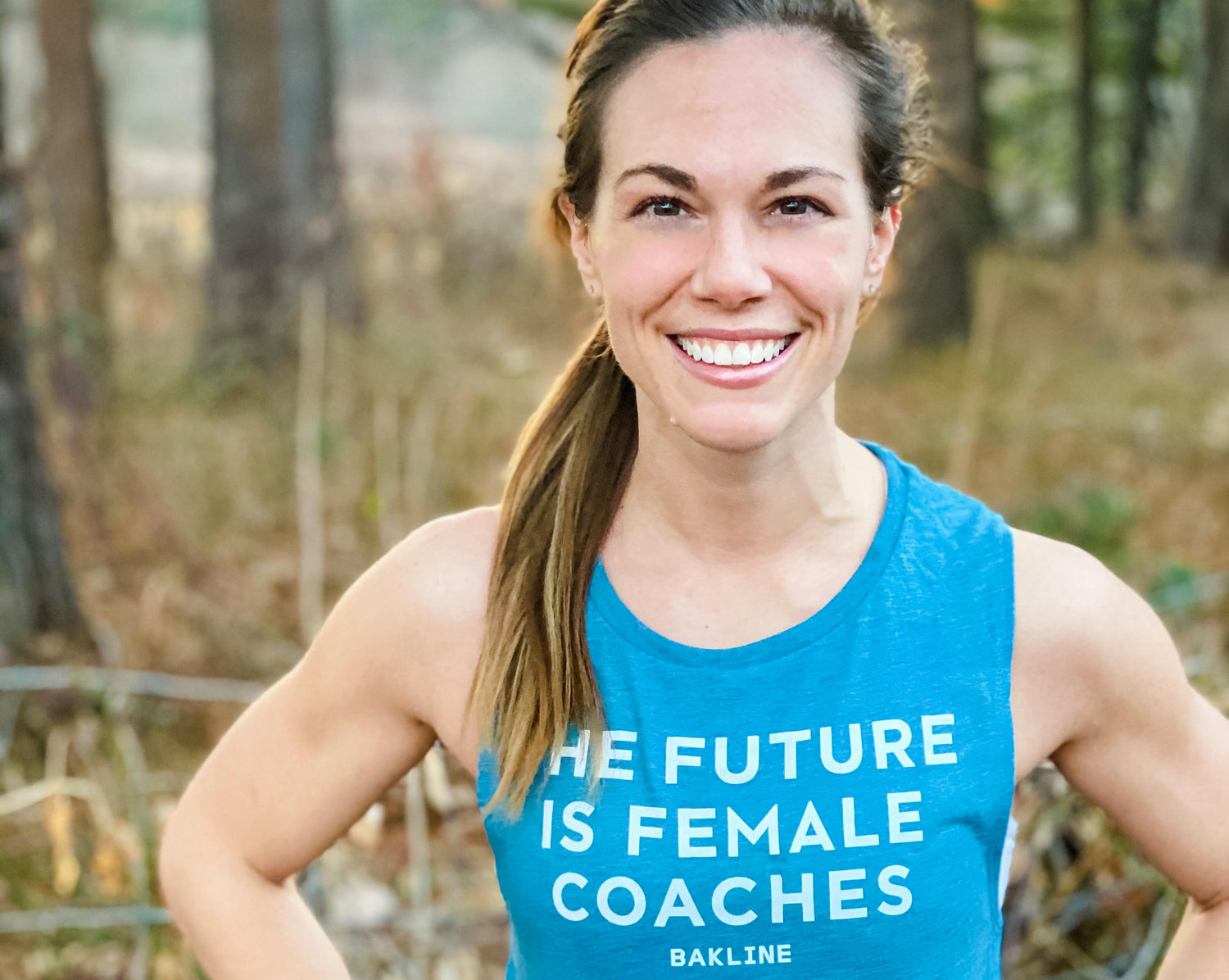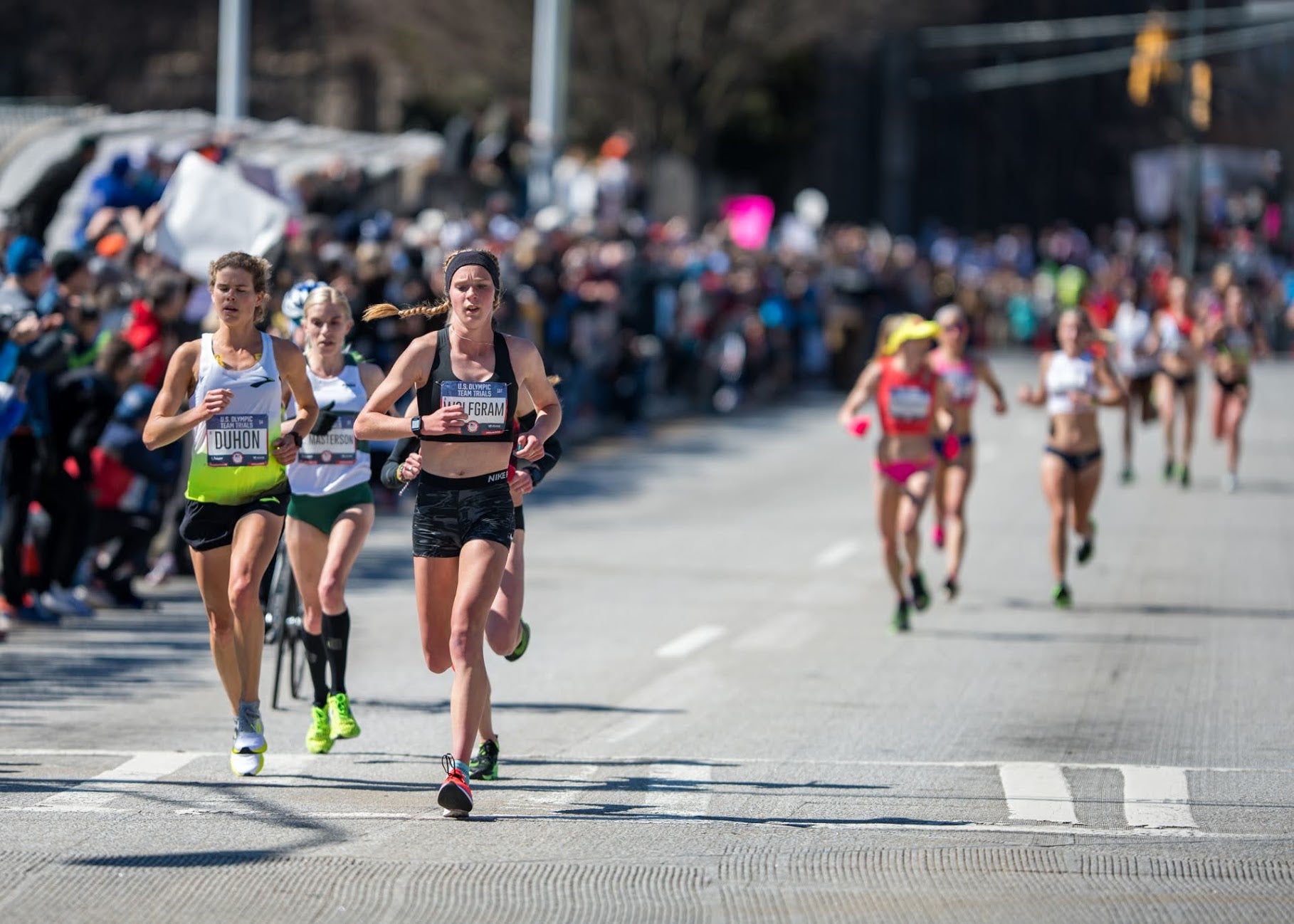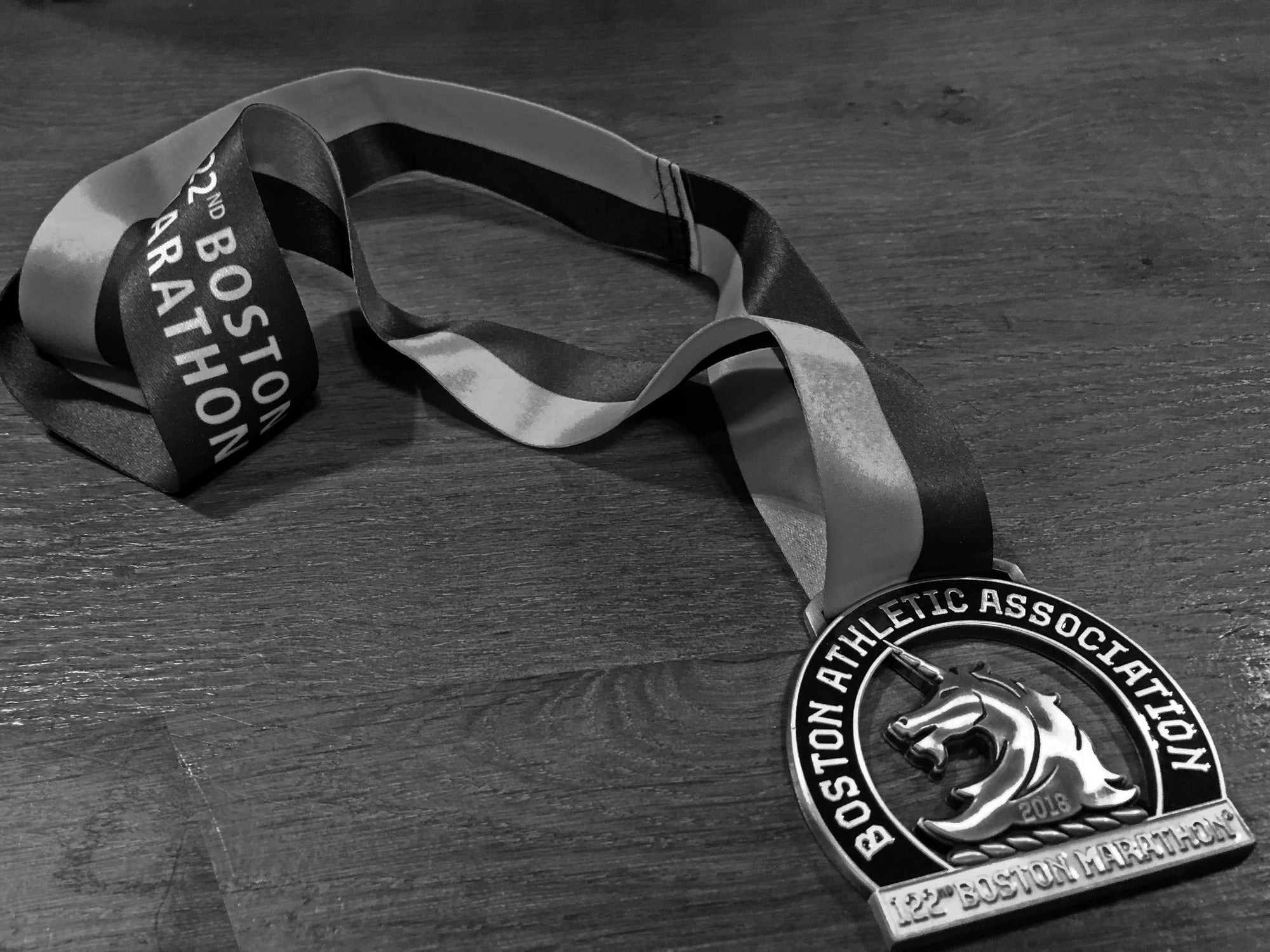In The Future is Female Coaches series, we’re celebrating the women of our sport who are leading, inspiring, and making us all stronger. Every week we’ll be featuring interviews with female coaches about their experiences and insights working across a variety of aspects and disciplines within the running space. We want to get the perspective of women working with youth sports and adult clubs, to highlight coaches training recreational and competitive runners, and hear stories from tracks, roads, and trails.
This week we’ve interviewed Mary Johnson, who has many roles as a runner, strength coach, running coach, mom, and founder of Lift.Run.Perform. Mary's sincere passion for helping runners get stronger and faster comes through in every facet of her work and writing. You can follow Mary at @liftrunperform, @itsamarython, www.liftrunperform.com, and www.itsamarython.com.

Athletic History & Experience: Ran 2 seasons of track in high school, then rowed for 4 years in college. Signed up for my first marathon in 2010 and BQ’ed in 2013. Started coaching in a strength facility in 2015, then formally became a running coach in 2016.
Current Athletic/Running Interests: I’m currently coming back from having a baby 9 months ago and also rehabbing a recurring SI joint issue.
Current Coaching Role: Owner and founder of Lift.Run.Perform.
How did you get your start in the sport? How have your involvement and interests changed over time?
I started running in high school first because I wanted to get out of gym...and then later stayed on the team when I decided I loved running way more than playing lacrosse. Over time, running has been that constant source of release and stability for me. My relationship with running has changed immensely, and I’m sure it’s only going to continue to change.
What has kept you engaged over the years?
The biggest realization I’ve had along the way is that speed and PRs aren’t what’s most important - if you’re not happy and healthy and enjoying the process along the way, what’s the point of doing it?
Did you have any female coaches in your athletic history? Did that change your experience in any way?
The first person who really affected me was the varsity high school lacrosse coach. She cut me from her team when I was undergoing a multitude of personal struggles, telling me, “you’ll bring my team down.” I didn’t realize it at the time, but I think that experience really tainted my impression of female coaches. After that point, I had one other female rowing coach, in college, but it was only for half a year, so she didn’t leave a huge impression on me.
What inspired you to start coaching?
I left my first career--fashion marketing--in 2015 and promised myself never to work in an office again. To decide what I wanted to do next, I started having conversations with people in the physical therapy world, as well as those in strength and coaching. Ultimately, I realized that coaching was a much better fit for me over PT, and that at the end of the day, if I could work with people and share my passion for fitness and sport, I would be happiest.

How have you evolved as a coach over time?
I’m so much more confident. When I first started coaching on the floor of a gym, I was totally overwhelmed--even more so because I am female and, at the time, there were only males working at the gym. With running coaching, I’ve become much more process-oriented as opposed to being super results-driven. Most importantly, though, I do know that I’m still learning and will never claim to know everything; I’m excited to continue to grow and develop over time.
What is your coaching philosophy?
I believe that results come over time and it’s important to remember that running is always going to be here for us. The most important thing is to love ourselves and the process and to believe that anything can happen.
What led you to found Lift.Run.Perform? Are there specific considerations for runners when it comes to strength training?
I attended a Bird Camp in 2017 where I made a strength presentation. After my presentation, I had everyone get up and move around--I wanted to coach everyone through some movement patterns. On the first exercise, a squat, I asked everyone to raise their hands if they thought they were doing it incorrectly. Just about every woman raised her hand--and the incredible thing was that just about every woman was performing the squat correctly! I realized that the missing piece between running and getting stronger was the lack of structured, progressive programs...and having runners feel empowered to give lifting a try.
Are there aspects of strength training and injury prevention that you find are of particular importance for women?
I think women and men share similar strength issues when it comes to being a more resilient runner. Women, of course, will need to work on extensive postpartum rehabilitation after having a baby--so that is definitely a remarkable difference! Many women also don’t realize how much strength they lose during pregnancy--so being able to take a step back and focus on a slow and progressive return to running is really crucial.

So much of the messaging to women surrounding fitness is focused on weight loss and body image rather than performance and strength. How can athletes and coaches shift the conversation and foster team cultures to support women as athletes?
Communication to women should never be about appearance or weight. As a coach, this is something I am extremely cognizant of. I will never critique a runner’s body, and to be honest, I’m even mindful about comments such as, “you look strong,” as that could actually be construed negatively to someone who struggles with body image. I typically gear my comments more towards types of emotion, such as, “you look so happy!” or, “you look so determined!” These types of neutral remarks are so much better-received than any type of body-related comment.
What’s the most important thing you’ve learned in your experience as a coach that you wish you’d known as an athlete?
That letting go and trusting (yourself...your coach...etc.) really does work.
Do you have any favorite resources when it comes to health or training information specifically for female athletes?
Jay Dicharry is a great PT and has written a few great books, most notably Running Rewired and Anatomy for Runners. I’ve also heard fantastic reviews about Stacy Sims’s Roar; however, I have not read it myself.
What areas of the sport have most evolved or improved for women in the time you’ve been involved?
I feel like a geezer when it comes to how long I’ve been running, haha! When I signed up for my first marathon, in 2010, I think there was only one type of GPS watch, and it was a huge brick you could wear on your wrist. I wore a regular Timex stopwatch for the first 3 years of running, and there’s something so pure and special about not knowing your pace.
When it comes to women-specific evolutions: there is so much more information now about running through pregnancy and postpartum running, inclusive of more understanding/communication about the pelvic floor. Strength training is something that’s also finally widely accepted and practiced--and fewer women are believing that lifting heavy weights will make you bulky!
What’s the most important area of growth or change you’d like to see for the future of female running?
I want more female runners to have confidence in themselves and remember that our relationship with running comes in waves--so it’s always ok to focus on self/family first and move running to the backburner until more motivation comes. I’ve seen many people run themselves ragged because they’re afraid to stop running and “lose” what they’ve gained. The reality is that building speed from scratch is hard, but maintenance is pretty easy--so even a year of stepping back from running and practicing other fun activities doesn’t mean that a person isn’t a runner, nor is she never going to be as fast as she once was. The key to becoming a long term, successful runner is to experience the ebbs and flows that it gives us along our journey of life!


